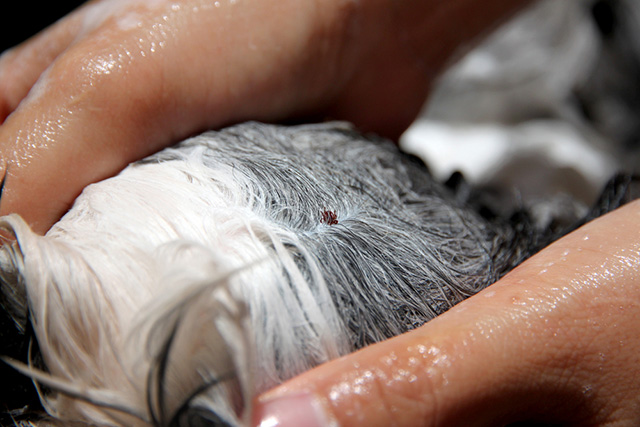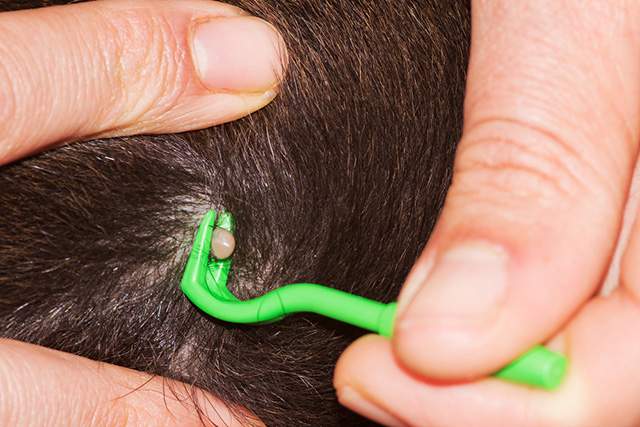Ehrlichiosis is a tick-borne disease. Infection with this parasite can cause anaemia, immunosuppression and compromise the blood’s clotting ability. This disease is considered as deadly as babesiosis.
A disease your dog could catch abroad
The disease is particularly widespread in large parts of North and South America, Europe (Mediterranean basin and the Rhone Valley), Asia and Africa. British dogs are particularly vulnerable if they travel abroad as they have never encountered the disease and therefore have no resistance.
How is Ehrlichiosis spread?
Ehrlichiosis is transmitted through tick-bites to dogs, in which they infect and proliferate in monocytes, which leads to immune complex related diseases. Susceptible dogs can die within a couple of days of the clinical signs appearing.

What are the signs and symptoms of Ehrlichiosis?
Ehrlichiosis has an acute, subclinical and chronic phase. The acute phase starts with fever, anorexia, vomiting, swollen glands and bleeding problems (nose bleeds). This phase can take up to four weeks. Most dogs will survive this phase.
Depending on a dog’s breed and immune status, a subclinical and chronic phase will follow. In the severe chronic phase symptoms like nose bleed, neurologic signs, inflamed kidneys and arthritis are seen. Most dogs in this phase will not survive. German Shepherds are very sensitive to the infection.
How do I protect my dog from Ehrlichiosis?
If holidaying abroad with your pet, it is vital to protect your dog from ticks and check its coat every day. If you can remove ticks, within a day of attachment, the disease can be prevented. A collar containing deltamethrin also controls infestation with ticks for five to six months.

